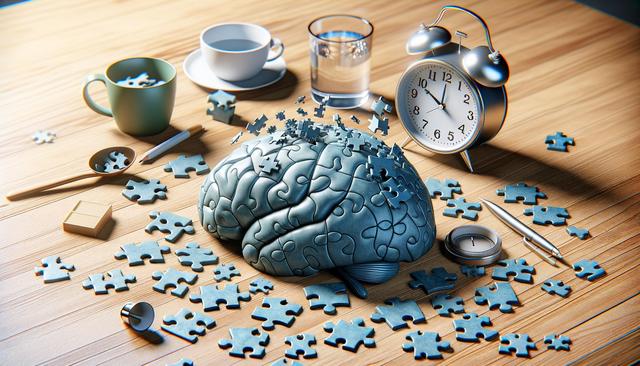
Early Signs of Dementia: Key Indicators and Tests
Understanding Dementia and Its Early Indicators
Dementia is a general term that describes a decline in cognitive function severe enough to interfere with daily life. It encompasses a range of conditions, including Alzheimer’s disease, vascular dementia, and others. While memory loss is a hallmark symptom, many other signs can appear early on, especially in men. Recognizing these early signs can help individuals and families seek medical advice sooner, allowing for timely management and planning. The progression and symptoms of dementia can vary significantly from person to person, and in men, some signs may manifest differently, making early diagnosis more complex but equally critical.
Common early symptoms of dementia include:
- Difficulty remembering recent events or conversations
- Struggling with problem-solving or complex tasks
- Changes in mood or personality, such as increased irritability
- Withdrawal from social activities or hobbies previously enjoyed
- Confusion with time or place
It’s important to note that some of these signs may be mistaken for normal aging or stress. That’s why understanding what is typical and what may indicate a deeper concern is essential. Regular health check-ups and cognitive assessments can play a vital role in identifying dementia-related changes early.
Gender Differences in Dementia Symptoms
Research shows that dementia symptoms can present differently in men compared to women. Biological, psychological, and even social factors can influence how dementia manifests. Men, in particular, may show less obvious signs of memory loss in the early stages but could display more noticeable changes in behavior and decision-making. These differences can sometimes delay a diagnosis or lead to misinterpretation of the symptoms.
In men, the following early signs are more frequently observed:
- Increased aggression or frustration
- Reduced interest in work or hobbies
- Impulsive or inappropriate behavior
- Trouble managing finances or making decisions
- Difficulty following conversations or instructions
Being aware of these gender-specific indicators is crucial for loved ones and caregivers. Observing and documenting changes over time can help healthcare professionals conduct more accurate evaluations, leading to earlier interventions and support strategies tailored to the individual’s needs.
When to Seek Medical Attention
Identifying the early signs of dementia is only the first step. It’s equally important to know when to consult a healthcare provider. While isolated incidents of forgetfulness can be part of normal aging, persistent and worsening symptoms warrant professional evaluation. Early diagnosis not only allows for better management of the condition but also provides the opportunity to plan for the future and access support resources sooner.
Consider seeking medical advice if you or a loved one experiences:
- Consistent memory challenges that disrupt daily life
- Noticeable changes in personality or behavior
- Increased confusion or disorientation
- Difficulties with communication or finding words
- Signs of paranoia or withdrawal from social settings
Healthcare professionals may conduct a series of cognitive and neurological tests to evaluate mental function. These assessments, sometimes accompanied by brain imaging, can help determine if symptoms are related to dementia or another issue. Early detection remains one of the most effective ways to improve quality of life and delay the progression of symptoms.
Diagnostic Tools and Cognitive Tests
Diagnosing dementia is a multi-step process that includes medical history review, physical exams, laboratory tests, and mental status evaluations. No single test can confirm dementia, but a combination of testing methods can provide a comprehensive picture of cognitive health. Screening tools commonly used by clinicians include the Mini-Mental State Examination (MMSE) and the Montreal Cognitive Assessment (MoCA), which evaluate areas like memory, attention, language, and problem-solving.
Some key evaluations used in diagnosing dementia include:
- Neuropsychological testing to assess different cognitive functions
- Brain imaging such as MRIs or CT scans to detect structural changes
- Blood tests to rule out other conditions like vitamin deficiencies or thyroid issues
- Interviews with family members to gather behavioral observations
In men, particular attention may be paid to behavioral symptoms and executive function, as these are more prominently affected in male patients during the early stages. Understanding the diagnostic tools available can empower individuals and their families to advocate for suitable assessments and care plans.
Supporting Men with Early-Stage Dementia
Once a diagnosis is made, the focus shifts to managing symptoms and maintaining quality of life. For men with early-stage dementia, support should be both practical and emotional. Establishing a routine, simplifying tasks, and encouraging physical and mental activity can be beneficial. Support groups and counseling can also help individuals cope with the emotional impact of the diagnosis.
Here are several ways to support men in the early stages of dementia:
- Encourage social interaction to reduce isolation
- Promote healthy lifestyle habits, including exercise and balanced nutrition
- Use memory aids like calendars, labels, and reminders
- Provide clear and consistent communication
- Explore legal and financial planning options early
Caregivers should also educate themselves about dementia progression and community resources. There are numerous organizations that offer assistance, from day programs to caregiver training. Early planning and a supportive environment can make a significant difference in how men adjust to life with dementia and maintain a sense of autonomy for as long as possible.
Conclusion: Taking Early Signs Seriously
Dementia is a complex condition, and its early signs—especially in men—may not always be obvious. Understanding how symptoms can differ by gender helps in recognizing potential red flags sooner. Whether it’s subtle behavioral shifts or noticeable cognitive changes, early attention to these signs can lead to better outcomes. By seeking professional help and utilizing available diagnostic tools, families can take proactive steps to manage dementia’s impact. For men, timely intervention and a supportive care plan can preserve quality of life and provide a foundation for ongoing support and understanding.


